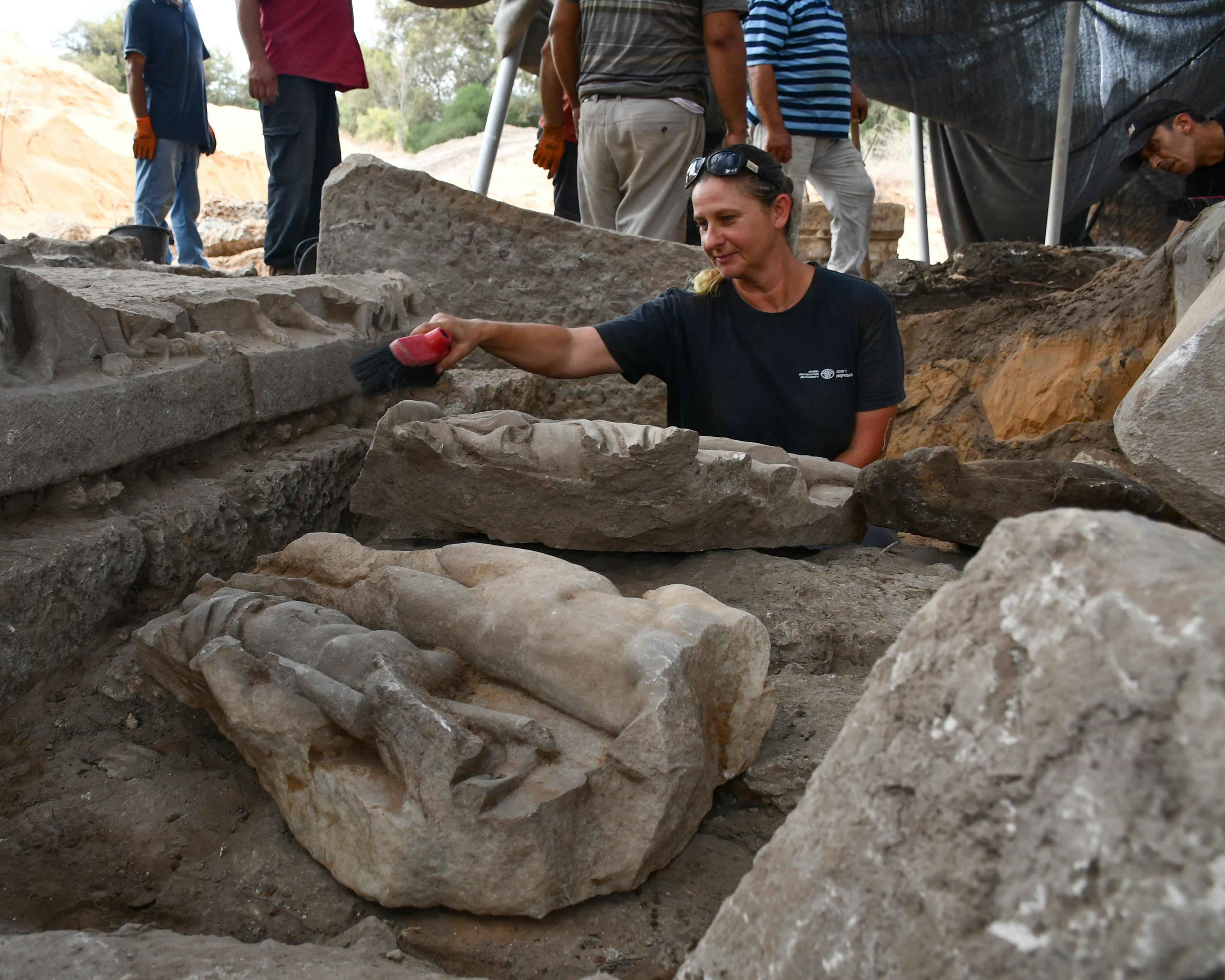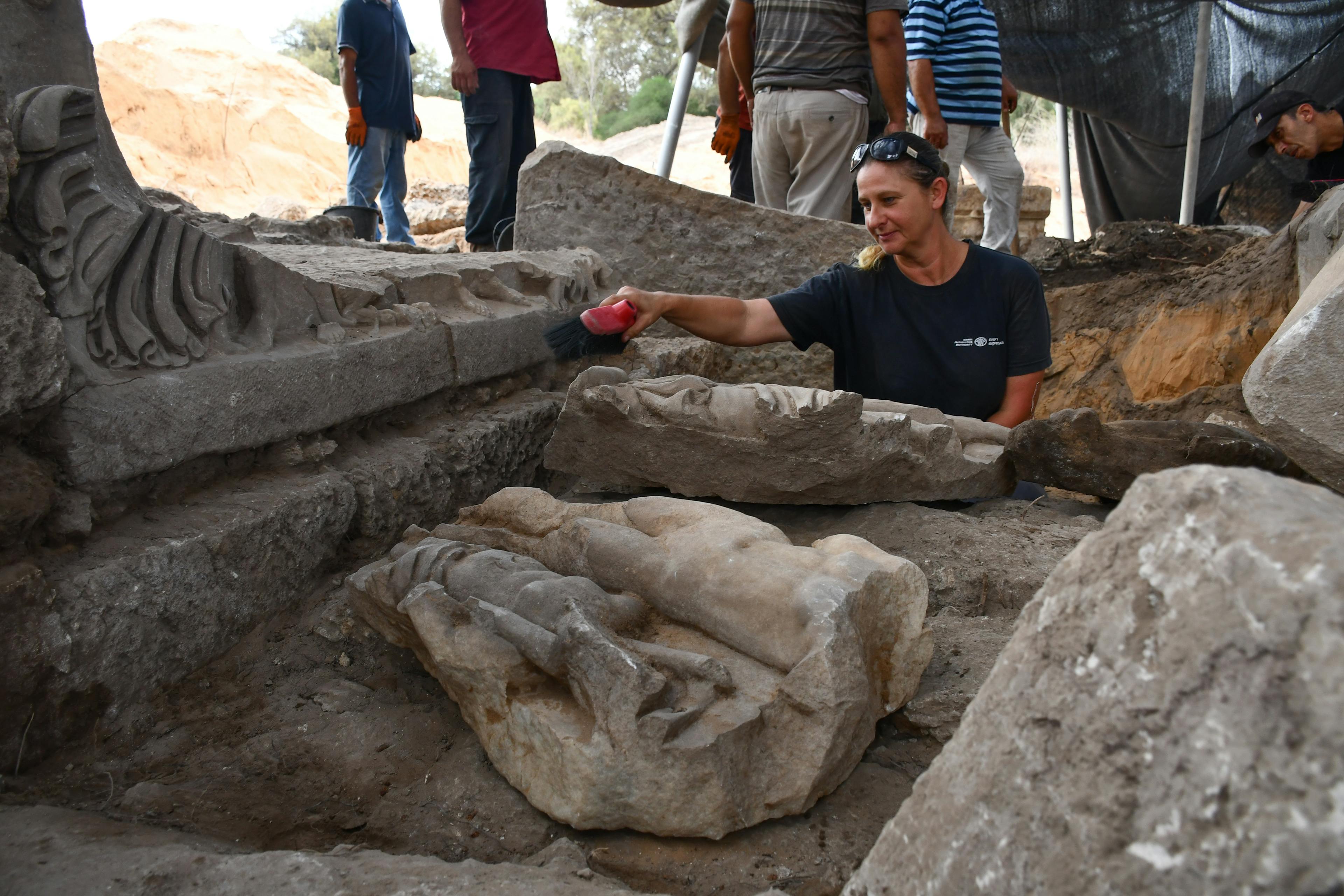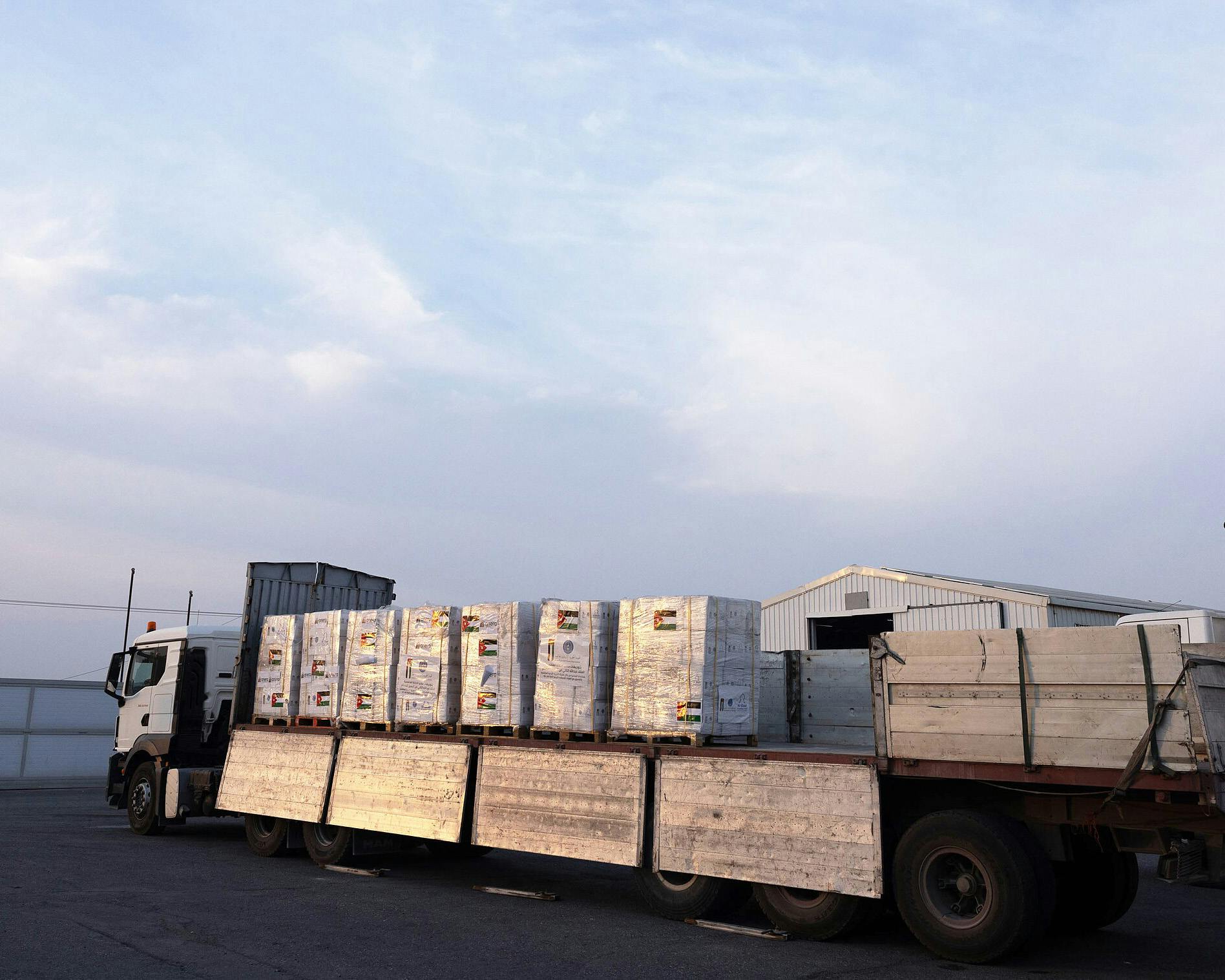Rare Roman Sarcophagus Unearthed in Caesarea

Tuesday, 10 June 2025 | Tuesday, 10 June 2025 | During archaeological excavations conducted by the Israel Antiquities Authority (IAA) in Caesarea, a spectacular and rare 1700-year-old Roman period marble sarcophagus (coffin) was uncovered. The sarcophagus displayed a special sculpted scene of the drinking contest between Dionysus (or Bacchus), the god of wine, and Heracles (Hercules), the mythological hero.
“It was like a scene out of a movie,” say Nohar Shahar and Shani Amit, IAA archaeologists. “We began removing the soft, light sand of the dune, when suddenly the tip of a marble object popped up. The entire excavation team stood around excitedly, and as we cleared more sand, we couldn't believe what we were seeing – parts of a sarcophagus, upon which figures were carved: gods, animals, and trees. Each uncovered fragment was more impressive than the one before. In fact, in the very last hour of the excavation came the climax—an entire intact side of the sarcophagus, which was buried in the sand, was uncovered, which portrays the scene of Hercules lying on a lion skin, holding a cup in his hand.”

The broken sarcophagus was handed over to the experts of the IAA's conservation team. There, conservators Solomon Gavriel, Ilya Armanovsky and Gadmo Vajpo, together with architect Ido Rosental, worked on restoring, cleaning and assembling the parts. Thanks to the restoration, the scenes have been fully revealed: In the center we see Dionysus, the god of wine, and around him a lively retinue of a host of mythological characters such as Maenads (female followers of Dionysus), satyrs, Hermes, Pan, lions and tigers.
“This is the very first time we find the Dionysus and Hercules wine competition scene on a burial coffin in our region,” says Nohar Shahar. “While processions of the wine god Dionysus are a familiar motif in sarcophagi from AD 200–300, yet this particular drinking contest scene—a familiar Roman art motif, is known to us here primarily in mosaics—such as those discovered in Zippori and Antioch. In this case, it seems that the figures are not only celebrating—they are in fact accompanying the dead on his last journey, when drinking and dancing are transformed into a symbol of liberation and transition to life in the next world. This sarcophagus offers an unusual perspective of the idea of death—not as an end, but as the beginning of a new path.”
And who won the drinking contest? “Hercules' condition, depicted on the sarcophagus as someone who is no longer able to stand, points to the obvious answer: Dionysus,” says Shahar.
“The sarcophagus was found within an area where archaeological remains were found outside the well-known walls of Caesarea,” adds the researcher. “This means that the space leading into it was actually much wider and thus richer in finds than we thought until now.”
(Excerpts from an IAA press release issued June 9, 2025. Time-related language has been modified to reflect our republication today.)
Related Resources

Discover Your Purpose and God’s Heart For You
In today's divided, turbulent world, it's essential for the Church to rediscover God's heart. Our free e-book, authored by a seasoned expert with three decades of experience in Israel, delves deep into the teachings of Jesus (Yeshua) to reveal God’s principles of love and purpose. Learn how embracing these truths can bring significance and impact to your life, even amidst chaos. Subscribe now to receive your free copy and embark on a journey of transformation.




